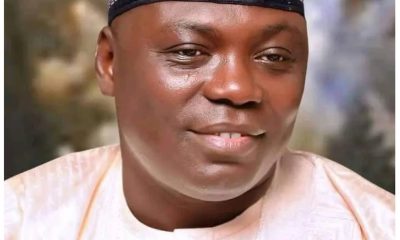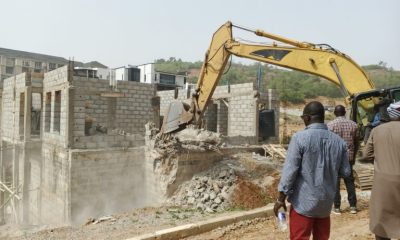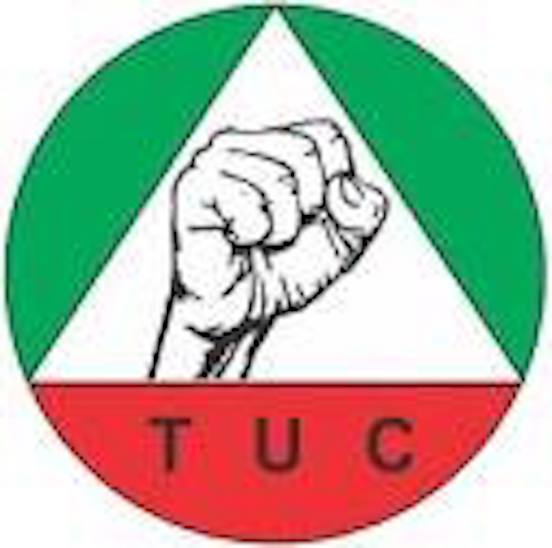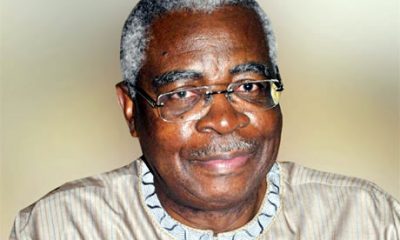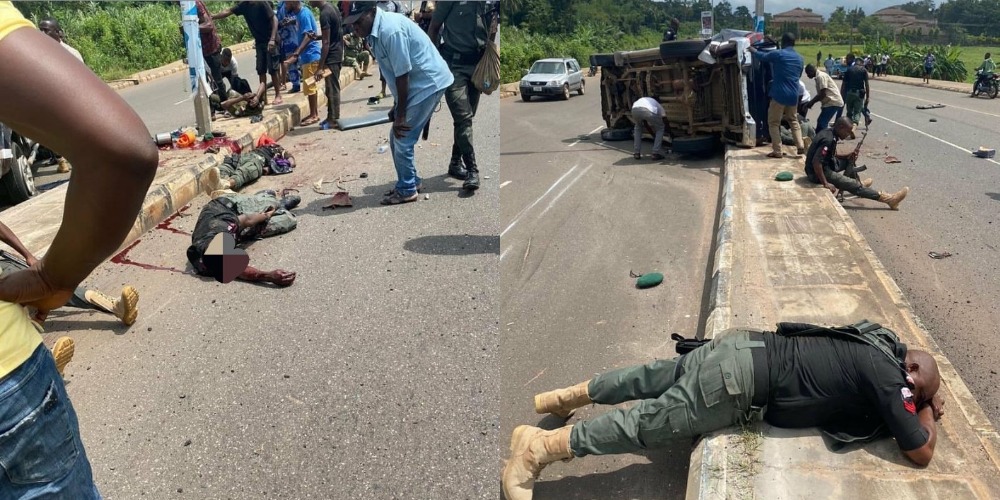NEWS
Server Controversy: INEC staff indict management
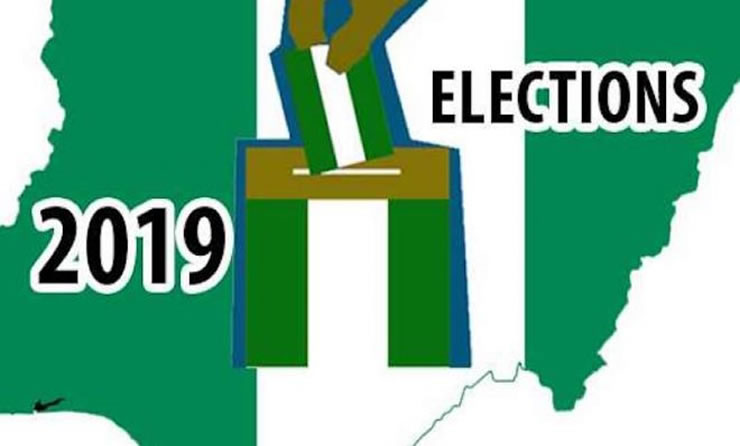
Several officials who said they were deployed as electoral officers by the Independent National Electoral Commission (INEC) for the 2019 presidential election said they transmitted results electronically to a ‘central server’ through smart card readers.
This they said was done in compliance with the directive given by the commission during a three-day training before the polls.
The 20 officials deployed to various states, who mostly worked as presiding officers, said they were told that there was a “central server in Abuja” where results are collated electronically.
It is not immediately clear on which “central Server” the officials admitted to transmitting results but this has added a new twist to the ongoing confusion trailing INEC’s consistent denial that it used no server for the election.
A manual issued to the electoral officials by INEC for the 2019 election revealed that the “Communicate” icon on the Smart Card Reader should be used to transmit the accreditation data to the central server.
Another handbook for election officials in 2018 was however more précise on how presiding officers should use the card readers for electronic collation and transmission of results.
It said it became necessary to apply technology to transmit data and results from the polling units due to irregularities that take place after the voting process.
“After successfully filling the EC8A result sheet and announcing the result, the presiding officer shall tap the e-collation application on the home screen”, a part of the book read.
Backstory
The runner up in February’s presidential election, Atiku Abubakar, and his Peoples Democratic Party (PDP) are challenging the victory of President Muhammadu Buhari at the election tribunal.
Determining whether the commission operated a central computer database that received election results has become central to the dispute after Mr Abubakar said results obtained from the server proved he won the election with 1.6 million votes to defeat Mr Buhari.
But INEC has strongly denied the claim, saying it neither transmitted results electronically nor saved them on any server. It said such activities were not permitted by the electoral law yet. The commission also accused Mr Abubakar of circulating fake results.
CONTRADICTIONS
Following the controversy over the veracity of INEC’s position on not using a central database, PREMIUM TIMES randomly interviewed about twenty electoral officers who worked in various states during the election.
While most of them admitted to sending the results electronically using the internet enabled smart card readers as directed, the rest said they only sent the number of accredited voters and rejected votes, “to the central server”.
Some of the officials, who requested to speak anonymously for fear of victimisation, said they were instructed to turn in the card readers after sending the results.
“INEC asked us to paste the result sheet and also send them electronically through the card reader,” a serving corps member who worked as an ad-hoc staff at Ido Local Government of Oyo State said.
“The results, as we were told, were sent into a central server in Abuja. The results can’t be more than the accredited voters on the card reader. It will reject it… You can’t submit your card reader without posting the results.”
Gbenga Oladayo, an Assistant Presiding Officer (APO) in Ipetumodu area of Osun State, described INEC’s denial as ‘contrived’.
“They told us there’s a server that automatically records the number of accredited voters, cancelled votes and rejected voters.”
The APO2 for polling unit 023 at Maryland, Kosofe Local government in Lagos corroborated this.
“We did that as we were told during the training. I was shocked when I also saw the news that INEC claims that there is no server.”
‘How we handled results’
An ad-hoc staffer for PU8, Ode Ajibade Ward, Ilorin East Local Government, Ode Ajibade in Kwara State explained how they handled the results as instructed.
“We were instructed, in line with the guidelines, to record the results on form EC8A and paste at the polling unit and also transmit the result via the electronic card readers through the e-collation option, and this was communicated to us during training. The revision was done by ‘RAC TECH’ guys too.
“The challenge we had was bad network. However, we ended up transmitting the results via the electronic card readers when we got to the collation centre. You must send the results before submitting the card readers.”
When asked where the results were transmitted to, he said he believe ”it’s to the central server”.
“Not only were the results sent. Figures regarding accredited voters were also transmitted. I did all these as the PO, and I also had an APO (VP).”
Another ad-hoc staffer for PU10, Ologbenla ward, Ifetedo Local Government, Osun State gave a similar account.
But the Presiding Officer (PO) at PU002, Ward 8, Agege Local Government of Lagos State disputed this.
He said ”they were not directed to do anything with the result”.
Hitches
Others who spoke said they experienced hitches in sending the results to the “central server” due to network challenges.
Ayo Aderibigbe, the P.O for Kware Local government in Sokoto State said during the training, said, “We were told to press the ‘send’ button on the card reader after the voting and the counting has been done.”
“They told us it would automatically get to them. But on Election Day, it was not going through because of the poor network, and after trying for hours, we paid one of the INEC technical officers at the local government, Raphael. He promised to help us upload this to the server when it was less congested,” Mr Aderigbe, a corps member, said.
Another corps member, who was the P.O at PU 022 ward 2 of Jos South local government In Plateau State, had a similar experience.
“I could not sleep that night. The issues most people had was the network. The network was not responding.”
But Collins, a student of Obafemi Awolowo University on election duty at PU008 of Fajuyi hall, Ile-Ife in Osun State said the network was “okay”.
“At exactly 1:40 p.m. that day, we sent the necessary information that should be sent via the card reader. I was shocked by INEC’s denial.”
Conundrum of INEC laws
details of INEC’s budget for the 2019 elections, and the spending plan shows the electoral body collected N1.47 billion from the federal government for servers.
But a spokesperson for the commission, Festus Okoye, told this Newspaper that the budget for servers was made in anticipation that President Buhari would sign the amended Electoral Act to allow electronic transfer of voting results.
NEWS
NYSC Doctor Donates 155 Menstrual Cups to Policewomen in Jos

From Jude Dangwam, Jos
A National Youth Service Corps (NYSC) member Dr. Hope Adeyi serving at Police College Cottage Hospital in Jos, Plateau State, has donated 155 menstrual cups to policewomen, wives of police officers alongside civilian staff.
The donation was made during the “Affordable and Hygienic Menstruation for Every Woman” outreach held at the Nigeria Police Staff College on Tuesday in Jos the Plateau State capital.
According to Adeyi, “The cost of sanitary pads has risen sharply nationwide, and for many families, it has become increasingly unaffordable.
“As a result, some women are now forced to use unsafe alternatives such as old rags, tissue paper, or improvised materials.
Unfortunately, these practices significantly increase the risk of reproductive tract infections, urinary tract infections, bad odour, discomfort, and reduced confidence,” she statedThe Doctor Copper highlighted the benefits of menstrual cups, saying, “Menstrual cups offer several benefits; they are safe, reusable, and environmentally friendly. A single cup can last up to 10 years when properly cared for. They only require regular washing with clean water, which is readily available in our community.
“They greatly reduce the financial burden of buying monthly disposable pads and help prevent infections by promoting cleaner and safer menstrual practices,” she explained.
She emphasized that providing the cups is more than a donation: “By providing menstrual cups to our women today, we are not just giving a product, we are offering long‑term relief, health protection, and empowerment. This project ensures that no woman in our community has to choose between her health and affordability,” she maintained.
The initiative she said was made possible by generous sponsors, whose contributions Dr. Adeyi thanked. “Your contributions go beyond financial support—they demonstrate a deep commitment to the dignity and health of women in this community. We thank you sincerely,” she said.
The NYSC doctor urged the women present to prioritize their health and dignity noting that, “Your health matters. Your comfort matters. Your dignity matters. Today’s outreach is a step toward ensuring that every woman in this community is supported, protected, and empowered,” she emphasised.
NEWS
Mutfwang Congratulates Gen. Danjuma on 88th Birthday, Lauds His Philanthropy
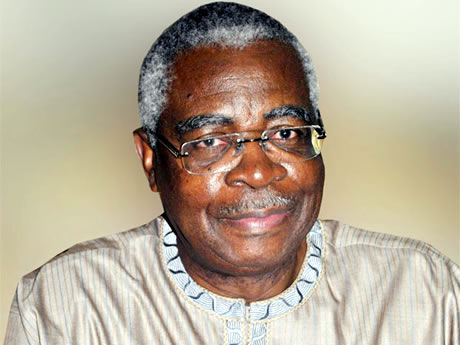
From Jude Dangwam, Jos
Plateau State Governor, Caleb Mutfwang, has extended his warm congratulations to Lt. Gen. Theophilus Yakubu Danjuma on his 88th birthday.
In a statement signed by his Director of Press and Public Affiars Gyang Bere and made available to Newsmen on Tuesday described Gen.
Danjuma as “a symbol of excellence, an exemplary philanthropist, and a symbol of hope whose life has been wholly devoted to the defence, progress, and upliftment of humanity”.Mutfwang praised Gen. Danjuma’s outstanding contributions to national life, citing his courageous military service, visionary business leadership, and transformative philanthropic work.
“You remain a priceless national asset and an extraordinary achiever who has enjoyed uncommon grace from God to lead, to serve, and to excel in diverse spheres of human endeavour,” he stated.
The Governor also highlighted Gen. Danjuma’s commitment to improving the lives of vulnerable Nigerians through the TY Danjuma Foundation, which has become a lifeline to underserved communities nationwide.
Mutfwang on behalf of his family, the government, and the people of Plateau State wished Gen. Danjuma long life, sound health, renewed strength, and divine wisdom as he continues to offer wise counsel and mentor younger generations.
CRIME
Enugu Police Arrest 25-Year-old Man over Alleged Kidnapping, Armed Robbery

From Sylvia Udegbunam, Enugu
Operatives of the Enugu State Police Command attached to the New Haven Division and the Distress Response Squad (DRS), on 6th December 2025 at about 6 a.m., swiftly responded to a distress call and arrested one Orlu Chukwuemeka (male, 25).
Investigations revealed that the suspect and his accomplice, who is currently at large, disguised as commercial operators of an unregistered white mini bus and abducted their female passenger in a one-chance-styled operation at Fourth Dimension, along Chime Avenue, Enugu.
During the incident, the suspects stabbed the victim, pushed her out of the moving vehicle along the same Chime Avenue, and escaped, after robbing her of an Android phone and ATM card.
Police operatives immediately trailed and intercepted them within Independence Layout, Enugu, leading to the arrest of Orlu, while the other suspect fled.Ina press statement sent by the Police public relations officer Enugu State Command, Daniel Ndukwe stated that the victim was promptly taken to the hospital for medical attention, where she regained stability and was able to positively identify the arrested suspect as part of the criminal gang.
The suspect has since been arraigned in court and remanded in custody, while intensive efforts are ongoing to track down the fleeing accomplice and ensure every person involved is brought to justice.
The Commissioner of Police, Mamman Bitrus Giwa, appreciates the timely support from public-spirited citizens that aided the swift arrest. He reiterates the Command’s unwavering resolve to combating violent crimes across Enugu State this festive season and beyond, urging residents to continue providing credible and timely security information.

